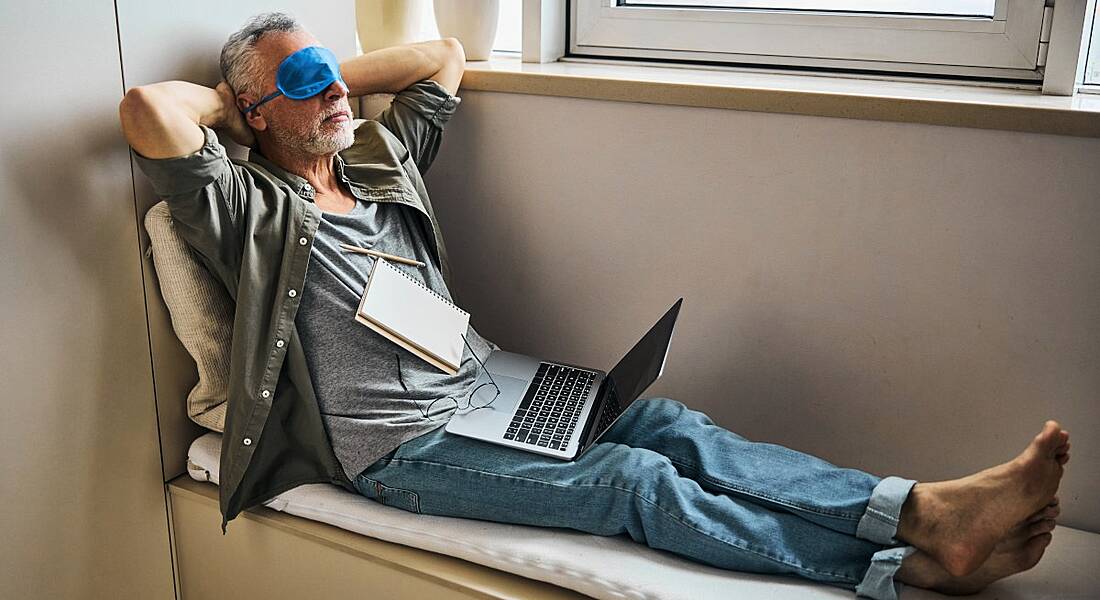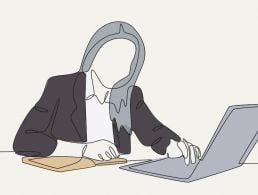Sleep scientists at Asana’s Work Innovation Lab say companies should invest in protecting the sleep hygiene of workers.
According to Dr Rebecca Hinds, head of The Work Innovation Lab at Asana, the economy runs on sleep in a literal sense. “Good quality sleep is one key tool that can help combat burnout. When workers experience sleep disturbances, job stress leads to burnout.
“One study of 1,300 financial professionals found that when workers experienced stress they were able to avoid burnout – but only when well-rested.”
Poor sleep is bad for individuals, obviously, but when a whole society is expected to function with poor sleep that’s when the problems start in a workplace context. One study estimated that poor sleep cost the US $44bn in lost productivity. And poor sleep and stress lead to medical problems like burnout.
“Burnout has a huge impact on employee welfare and business productivity. Research has shown that burnout can contribute to 50pc or more of an organisation’s annual [workforce] turnover – a phenomenon called ‘burn and churn’.”
Hinds believes that employers need to take initiative if they want to ensure no productivity is lost because of employees not sleeping enough. She says it is important to lead by example and not contact staff after working hours or expect them to put in crazy long hours when they should be resting.
Lead by example
“Instructing your teams to get more sleep won’t mean much if you’re regularly pinging them after midnight. To encourage healthier sleep habits, leaders should lead by example. Saying things like ‘(Employee), do you mind if we check in tomorrow instead of this evening? I didn’t get enough sleep last night, so I’m going to log off early today to make sure I can prioritise that’ sets a powerful tone for the organisation.”
Sometimes just talking about sleep and rest like it’s a normal, human function can help too. Macho leaders who act like sleep is a weakness or something that lazy people do is wrong, Hinds reckons.
Build sleep into your company culture
Of course, you could go one step further and really celebrate the snoozers. “To truly encourage employees to embrace better sleep habits, it has to be embedded within the company culture,” Hinds says. “Leaders should promote asynchronous work where possible, letting team members work (and sleep) whenever is best for them.”
If that sounds complicated, Hinds says there are a number of ways to encourage async work practices, including discouraging early- or late-night meetings, allowing for flexible start times for at least part of the week and “establishing new norms that the team agrees on”.
The power of apps
Hinds recommends fitness tracker apps, although they might not work for everyone. She says there are lots of these apps that monitor and assess sleep. But if business leaders are thinking of going all in and giving these tracker apps to workers, they should ensure that they prioritise the apps that “give actionable insights into how to improve sleep habits and practices to get the most out of their investment”.
“When apps merely track your sleep and don’t offer areas for improvement, they don’t actually improve sleep. Data without direction has limited value.”
…And nap rooms
Another thing Hinds recommends, which may seem rather unorthodox to most, is nap rooms. “Even 20-minute naps have been shown to boost learning and information retention,” she says.
“The restorative nature of naps can help when learning new things at work or when brainstorming a solution to a challenge or a task that needs creative thinking. Consider installing or creating nap rooms in your workplace and educate your employees on which types of naps are best for which purposes. For example, a 20-minute power nap can improve alertness, energy and memory, but just 10 minutes longer and workers will likely only wake up feeling more groggy.”
10 things you need to know direct to your inbox every weekday. Sign up for the Daily Brief, Silicon Republic’s digest of essential sci-tech news.




